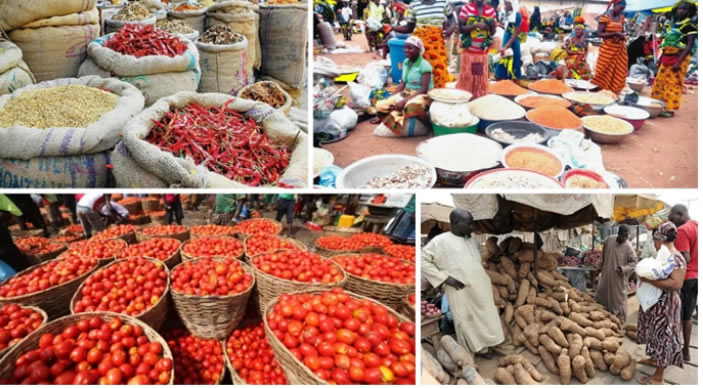The recent Nigeria Development Update report from the World Bank has highlighted the tragic rise in poverty levels within the country, indicating that over 129 million Nigerians now live below the national poverty line. This situation has deteriorated significantly since 2018, when the poverty rate stood at 40.1%. The report states that the current level, projected to reach 56% of the population by 2024, reflects a stagnated economic growth that has failed to keep pace with escalating inflation. With the real GDP per capita languishing below pre-2016 recession levels, the analysis attributes this troubling trend to the cumulative impact of various economic shocks, including the fallout from COVID-19, natural disasters, and ongoing insecurity. Consequently, around 115 million Nigerians are considered poor as of 2023, marking a stark increase over the last few years.
Governor Bala Mohammed of Bauchi State expressed grave concerns regarding President Bola Tinubu’s economic policies, labeling them ineffective in alleviating the economic hardships faced by ordinary Nigerians. He argued that both federal and state government financial allocations were insufficient to meet pressing needs, meaning that many households are struggling to attain basic necessities. While the World Bank acknowledged the painful nature of some reforms initiated by Tinubu as critical for long-term stability, local state leaders call for a revisitation of strategies aimed at reducing economic distress. Governor Mohammed emphasized the need for policies that support informal sector workers and restore purchasing power lost to inflation.
Highlighting the spectrum of poverty, the World Bank’s report indicated that rural poverty persists alongside rising urban poverty, with 31.3% of urban dwellers now classified as poor, an increase from 18% in 2018. In a critical dialogue, the World Bank’s key economist for Nigeria Alex Sienaert highlighted that mere job creation isn’t a silver bullet for poverty alleviation unless these jobs provide adequate wages. He pointed out that the higher minimum wage introduced recently would only touch a limited segment of the population, reinforcing the necessity for creating productive employment opportunities. Sienaert slammed misconceptions regarding the World Bank’s involvement in maintaining Nigeria’s economic dependency and indicated a strong willingness for collaboration in reformative efforts.
The World Bank leadership urged the Nigerian government to persist with its economic reforms while advising against reverting to past practices that have proven disastrous. With the country’s fiscal deficit reported to have dropped from 6.2% of GDP in 2022 to 4.4%, as a result of subsidy removals, officials emphasized the importance of sustaining reform initiatives. The Finance Minister, Wale Edun, exuded confidence in Nigeria’s economic recovery trajectory, attributing this positivity to the Central Bank of Nigeria’s recent monetary policy measures, aimed at stabilizing the country’s economy and exchange rates. Additionally, discussions regarding future job creation initiatives were presented, focusing on the housing finance sector as a means to stimulate economic activity.
The burdensome economic climate in Nigeria has led to widespread discontent among citizens, who are navigating the dual crises of escalating prices and soaring unemployment. Many families are forced to adopt frugal living methods in an effort to cope. As President Tinubu embarks on an annual two-week vacation, citizens are increasingly perceiving a disconnect between leadership and the realities of their struggles. Since Tinubu assumed presidency in May 2023, commodity prices have surged by 45.92%, while the general inflation rate ascended sharply, driven largely by the removal of fuel subsidies which contributed to higher transportation and production costs. Essential goods and services have become unaffordable for many, leading households to devise innovative strategies for survival in a context of economic despair.
Further exacerbating the situation, the Central Bank of Nigeria has responded to these challenges with significant interest rate hikes, aimed at controlling inflation. While these measures might stabilize currency value and help curb inflation, they have also raised fears regarding their impact on economic growth and borrowing costs. Fuel prices have soared in tandem with these economic policies. The promised reductions in petrol prices have turned into increases that severely affect the already impoverished population, revealing a stark contrast between government promises and the lived realities of citizens. Despite a commendable GDP growth rate recorded recently, the benefits are not trickling down, leaving many Nigerians disillusioned about the efficacy of government reforms.
In conclusion, the report underlines an urgent call for economic strategy reassessment amid rising hardships. The current trajectory indicates the risk of escalating public discontent and potential political instability if corrective measures are not swiftly implemented. Individuals across the country are united in their pleas for immediate action from the government, with fears that the mounting pressure from rising costs of living could lead to unpredictable social unrest. As the complexities of Nigeria’s economic challenges deepening, the time for decisive action appears imperatively ripe. The dialog among stakeholders must shift toward practical, sustainable solutions that prioritize not only the stabilization of economic indicators but address the substantive needs of the populace in a dire socio-economic landscape.


